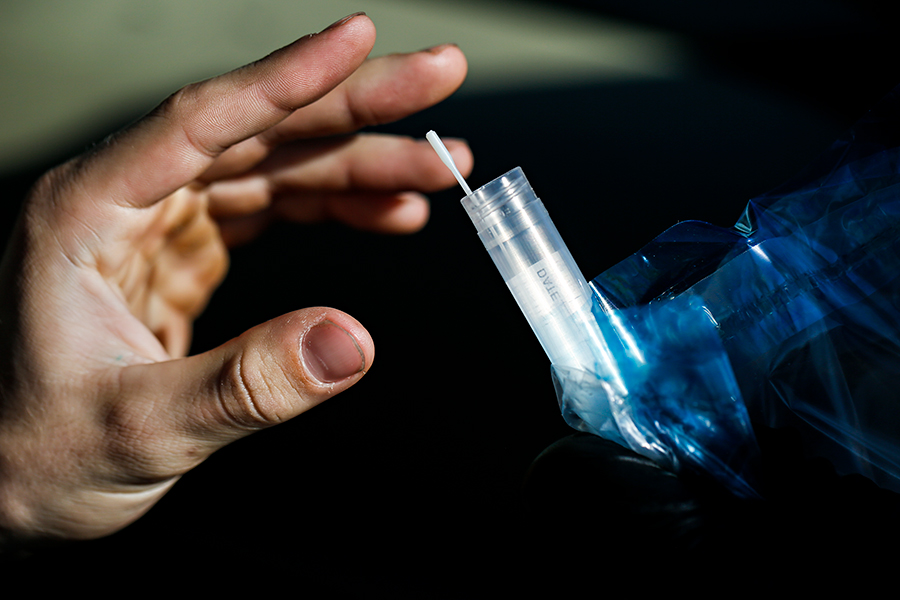Increased Demand for Testing Hits Flathead County
The Flathead City-County Health Department has increased its weekly orders of home testing kits
By Mike Kordenbrock
Rapid COVID-19 tests are disappearing quickly off store shelves and the increased demand for testing amid the spread of the Omicron variant has coincided with the holiday season.
The shift has been apparent over at the Flathead City-County Health Department, where Health Officer Joe Russell said the department has increased its weekly request for at-home testing kits provided by the Montana Department of Public Health and Human Services.
The health department had been requesting between 500 and 600 test kits a week. For the last few weeks the health department has been requesting 1,000 kits a week.
Last Thursday Russell said the health department’s supply of at-home testing kits had dwindled down to about 100 in the building. The tests have a high sensitivity in symptomatic people, which is generally when people are more capable of infecting other people, according to Russell.
“People are coming in nonstop to get them,” he said. “So many people want to test before functions, or before they go see infirmed relatives.”
Over at the Walgreens on West Idaho Street, a phone call for testing services quickly leads to an automated message warning of an “unprecedented demand for at-home COVID tests,” which is leading to longer than normal wait times. Another automated message notes that results may be delayed.
Russell said that the availability of tests through the state has improved in recent months, from when the county could get between 200 and 300 per order, and that there were no kits available at one point roughly a month-and-a-half ago.
“It’s based on what the supply is available out there,” he said.
Jon Ebelt, a spokesperson for DPHHS said by email last week that DPHHS has distributed 20,000 Binax Home tests to county health departments, and recently ordered 10,200 more.
“We will soon order another 20,000 tests,” Ebelt said. “However, the Home tests are in high demand so there are limitations to how many we can order and distribute. Thus far, we continue to be able to fill all orders made by local county health departments for use in their communities. About half the local county health departments are requesting these tests on a regular basis.”
DPHHS is also receiving incremental deliveries of a 250,000 BinaxNOW rapid antigen test order placed in October. About 40% of that order has been used to date, and Ebelt said there’s no anticipation of a need for ordering additional rapid antigen tests for several months. The BinaxNOW rapid antigen tests are prioritized for sites deemed “most at-risk to COVID-19 outbreaks,” including hospitals, critical access hospitals, K-12 schools, federally qualified Health Centers, nursing homes, various congregate settings, local county health departments, Tribal clinics and more.
President Joe Biden promised last month that 500 million free coronavirus tests would be made available, but it’s still unclear when exactly people will be able to acquire the tests.
In addition to preventing the spread of disease, testing can also play an important role in treatment. As Logan Health hospitalist Dr. Cory Short explained, treatments like monoclonal antibodies are on an emergency use authorization which recommends they be administered within 10 days of symptom onset.
“It seems like those monoclonal antibodies are more effective the closer they’re getting to contracting the virus and becoming symptomatic with the virus,” he said. “If people are feeling a little run down, shortness of breath, fevers, or just having any symptoms, if they’re tested and they meet the criteria for monoclonal antibodies it’ll be easier to get them administered.”
Short, who is the executive physician for the acute care service line at Logan Health hospital, said the desire for people to get tested is encouraging.
“Boy, yeah, if we had an endless supply of these things, I think it would put us all in a safer situation.”